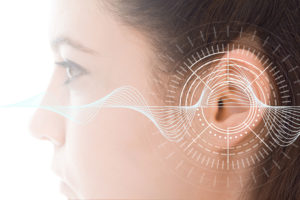[fusion_builder_container hundred_percent=”no” hundred_percent_height=”no” hundred_percent_height_scroll=”no” hundred_percent_height_center_content=”yes” equal_height_columns=”no” menu_anchor=”” hide_on_mobile=”small-visibility,medium-visibility,large-visibility” status=”published” publish_date=”” class=”” id=”” background_color=”” background_image=”” background_position=”center center” background_repeat=”no-repeat” fade=”no” background_parallax=”none” enable_mobile=”no” parallax_speed=”0.3″ video_mp4=”” video_webm=”” video_ogv=”” video_url=”” video_aspect_ratio=”16:9″ video_loop=”yes” video_mute=”yes” video_preview_image=”” border_size=”” border_color=”” border_style=”solid” margin_top=”” margin_bottom=”” padding_top=”” padding_right=”” padding_bottom=”” padding_left=””][fusion_builder_row][fusion_builder_column type=”1_1″ layout=”1_1″ spacing=”” center_content=”no” link=”” target=”_self” min_height=”” hide_on_mobile=”small-visibility,medium-visibility,large-visibility” class=”” id=”” background_color=”” background_image=”” background_image_id=”” background_position=”left top” background_repeat=”no-repeat” hover_type=”none” border_size=”0″ border_color=”” border_style=”solid” border_position=”all” padding_top=”” padding_right=”” padding_bottom=”” padding_left=”” margin_top=”” margin_bottom=”” animation_type=”” animation_direction=”left” animation_speed=”0.3″ animation_offset=”” last=”no”][fusion_text columns=”” column_min_width=”” column_spacing=”” rule_style=”default” rule_size=”” rule_color=”” hide_on_mobile=”small-visibility,medium-visibility,large-visibility” class=”” id=””]
 While common, hearing loss can be a complicated ailment. Not only are there various types and causes of hearing loss, patients also experience hearing loss at different levels. These levels of severity, known as degrees of hearing loss, are a measurement of how loud (in decibels) a sound has to be for you to hear it. These are generally categorized as mild, moderate, severe, or profound. In cases that border categories, they would be referred to as a combination; for example, moderate-to-severe. The higher the decibel range, the more severe your hearing loss.
While common, hearing loss can be a complicated ailment. Not only are there various types and causes of hearing loss, patients also experience hearing loss at different levels. These levels of severity, known as degrees of hearing loss, are a measurement of how loud (in decibels) a sound has to be for you to hear it. These are generally categorized as mild, moderate, severe, or profound. In cases that border categories, they would be referred to as a combination; for example, moderate-to-severe. The higher the decibel range, the more severe your hearing loss.
A helpful way to understand degrees of hearing loss is to visualize it as a scale, with mild being the lowest in severity and profound being the highest. According to the Hearing Health Foundation, mild hearing loss is similar to someone with typical hearing placing their fingers inside their ears; the difficulty mainly surfaces when trying to hear young children or people with softer voices. On the other end of the spectrum, people suffering from profound hearing loss are unable to hear very loud sounds like an airplane engine without assistance from hearing aids. Moderate and moderate-to-severe hearing loss fall towards the middle; people who’s hearing loss fit in these categories are more likely able to hear without hearing aids but have trouble fully comprehending speech.
Your degree of hearing loss can be determined by a simple trip to an audiologist. The audiologist will choose the best hearing test for you based on your age, physical ability and any related symptoms you may have pointed out. Your results will be recorded on an audiogram, which is the equivalent to a prescription. This will help your audiologist determine the best type of hearing aid to fit your needs.
If you are in the South Florida area and are experiencing symptoms of hearing loss or have questions about hearing loss, contact the experts at New Generation Hearing Centers today for your FREE consultation.
[/fusion_text][/fusion_builder_column][/fusion_builder_row][/fusion_builder_container]

